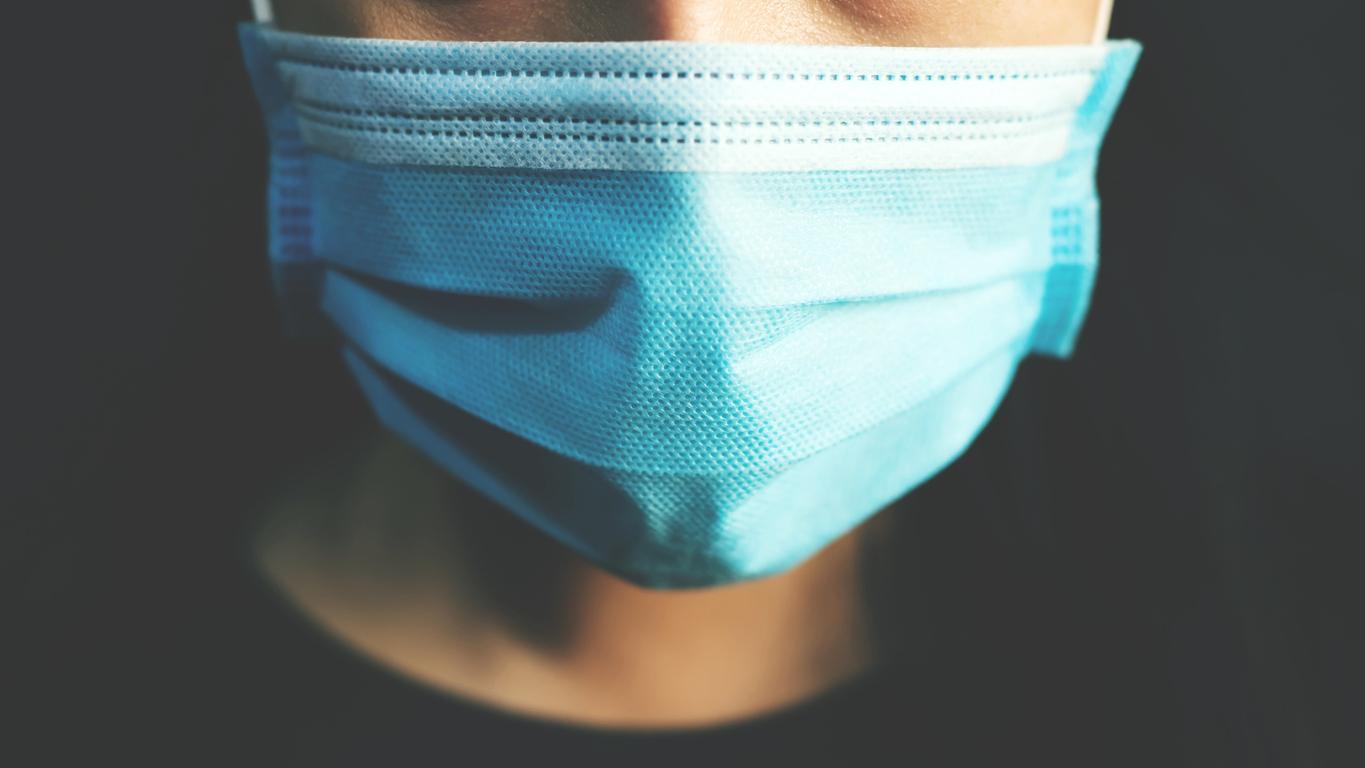The heat wave that is sweeping through France in the midst of a health crisis is raising many questions about the behavior to adopt. From wearing a mask to using the air conditioner, here’s how to live well in the heat while continuing to protect yourself against the Covid-19 epidemic.

- It is better to wear clear and fabric masks
- Air conditioners can be used only if they circulate outside air and it is recommended to avoid fans, unless the windows are wide open and there are not many of them.
- Heat plays a brake role in the spread of the coronavirus
This week, the whole of France is seeing red. The mercury will rise to 35 degrees with an average for the week of 30 degrees in the northern part of France. If the temperatures are high during the day, the evenings remain relatively cool, preventing this period from being qualified as a heat wave and from Friday, the rain should return. In the meantime, the coronavirus epidemic is still present despite a constant drop in the number of admissions to the intensive care unit and daily deaths. To protect against this high heat while continuing to protect against the epidemic, certain gestures must be respected.
Wear clear and cloth masks
To fight against the spread of the virus, wearing a mask is recommended and compulsory in many places, especially workplaces. During periods of peak heat, wearing a mask can quickly become a burden. To limit the inconveniences, it is preferable to wear a mask of a light color which absorbs less heat. “If you have sensitive and reactive skin, it is better to use sheet masks which will cause less reaction because there is no chemicaladvises allergist Nhan Pham-Thi, at France 2. It absorbs heat and sweat.” Finally, intense physical activities with a mask on the face should be avoided on hot days.
Air conditioning possible if it brews outside air
The question of air conditioner use is at the center of the questions since we know that the coronavirus is mainly transmitted by aerosols. To answer: if the air conditioner recycles indoor air, it must be avoided, but if it circulates new air from outside, then yes, you can turn on your air conditioner. “It all depends on the type of installation, but what is necessary at all costs is to avoid the circulation of recycled airabounds in 20 minutes Francis Allard, Emeritus Professor at the University of La Rochelle and member of the Association of Engineers and Technicians in Climate, Ventilation and Cold (AICVF). However, for reasons of energy saving, most collective living spaces such as offices or supermarkets recirculate indoor air flows because it costs less.”
The problem of air conditioning arose after the study of a Chinese restaurant where a family arriving from Wuhan, the Chinese region from which the pandemic started, had lunch in the establishment. Later that day, an elderly woman began to feel unwell and nine people who were eating at adjoining tables at the same time became infected after a week. Air conditioning was then blamed for having dispersed the virus by aerosols. Ultimately, this thesis was denied. “The thesis of air conditioning as a source of contamination held waterconcedes Francis Allard. The plan of the contaminated people corresponded to the air circulation direction of the air conditioning system. Except that by going to take the measurements on the spot, the researchers found that the restaurant was not ventilated enough. We are talking about an air renewal rate ten times lower than the recommendations. This explains for example that the servers were not contaminated, nor the customers of the other four floors of the restaurant concerned. Due to the lack of fresh air from outside, there has been a stagnation of viral particles in the air”, he concluded.
Covid-19: chain contamination in an air-conditioned Chinese restaurant – The key factor was the direction of the air blown by the air conditioner and the airborne transmission by the droplets.https://t.co/Ke6GMu6gko… @Agri_Gov @EducationFrance @FCPE_nationale pic.twitter.com/SM1VSytTw8
— Jean-Marc Bonzom (@JMBonzom) April 22, 2020
The fan, not really recommended
For ventilation, the idea is rather to avoid it. It is possible to use it but it must imperatively be done with the opening of the windows to renew the air. In an opinion issued on June 21, the High Council for Public Health does not recommend its use. “In collective spaces of small volume, closed or incompletely open, the use of a fan aimed at mixing/refreshing the air in the absence of air conditioning is contraindicated when several people are present in this space, even wearing masks. These recommendations apply in the event of a heat wave.” In Canada, all 226 residents of an Ehpad found herself infected with Covid-19 after the breakdown of the central ventilation system. Restarting the ventilation made it possible to evacuate the contaminated air and renew it with healthy air by opening the windows.
The measures to be taken with air conditioning and ventilation to avoid a possible spread of the virus of #COVID__19 in confined spaces #coronavirus >> https://t.co/TU2tRmJQck pic.twitter.com/FTgzxUQoG4
– The Parisian Infog (@LeParisienInfog) June 11, 2020
Heat can limit the spread of coronavirus
Rising temperatures may help limit the spread of SARS-CoV-2. A brazilian study, carried out between February 27 and April 1, shows that from 16 degrees, each additional degree reduces the transmission of the virus by 4%. For extreme temperatures, exceeding 50 degrees, the virus is only viable for a few minutes since the high temperatures destroy the surface proteins that allow the virus to infect cells. In a press release in mid-May, however, the WHO insisted that Covid-19 remains active even in tropical areas and in hot countries, such as the Middle East.

.

















